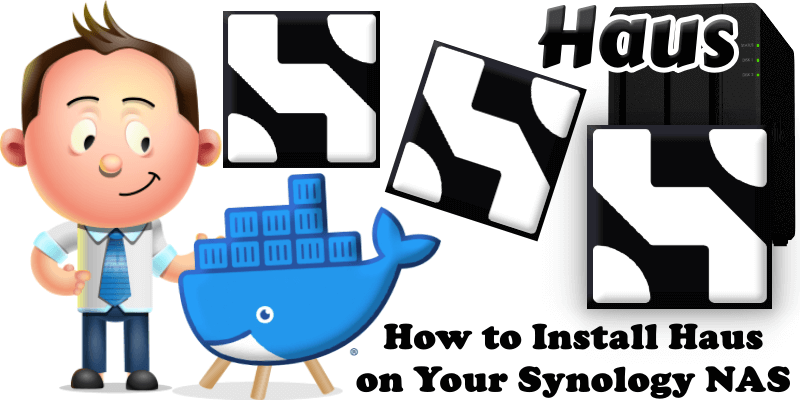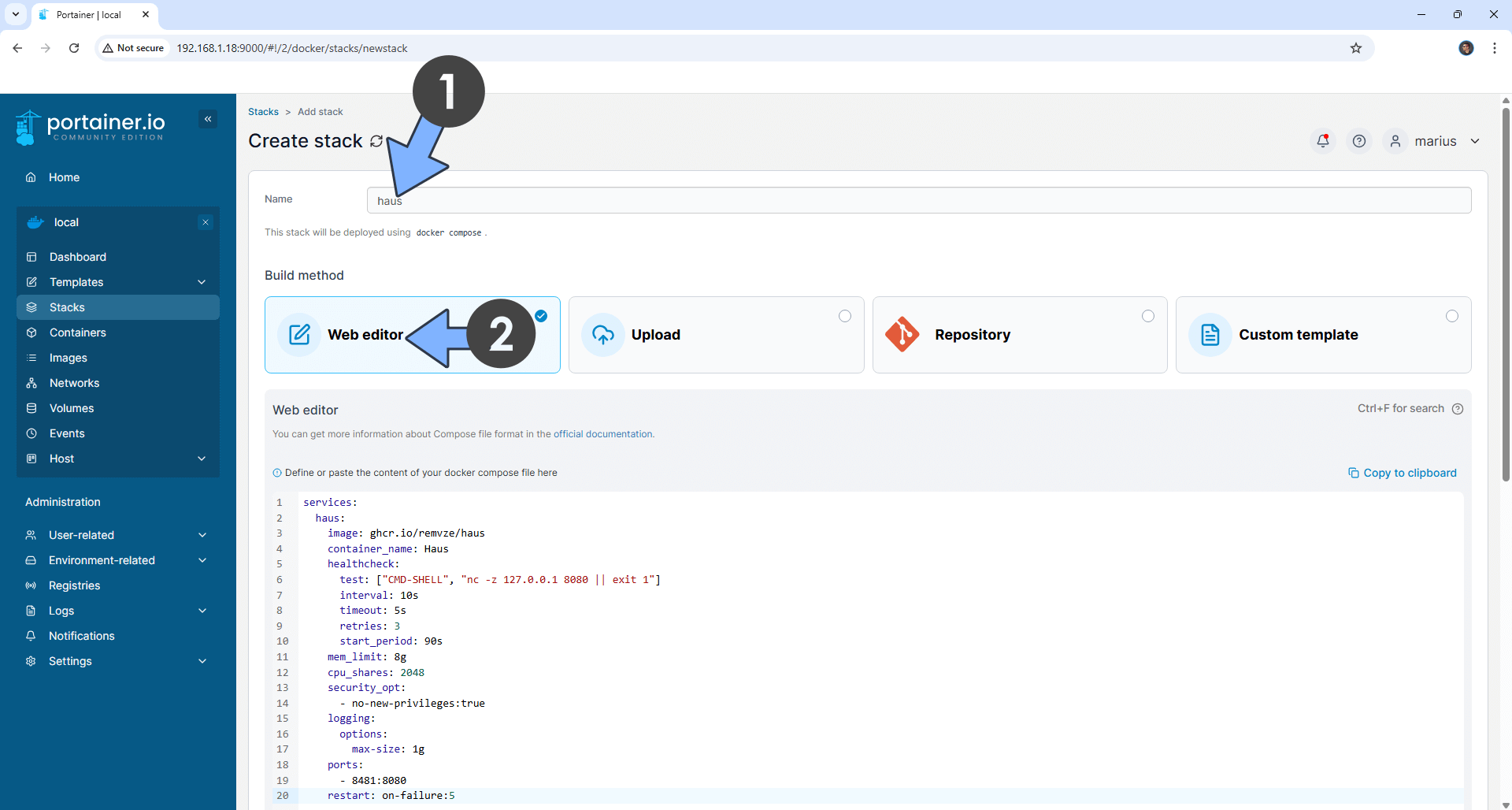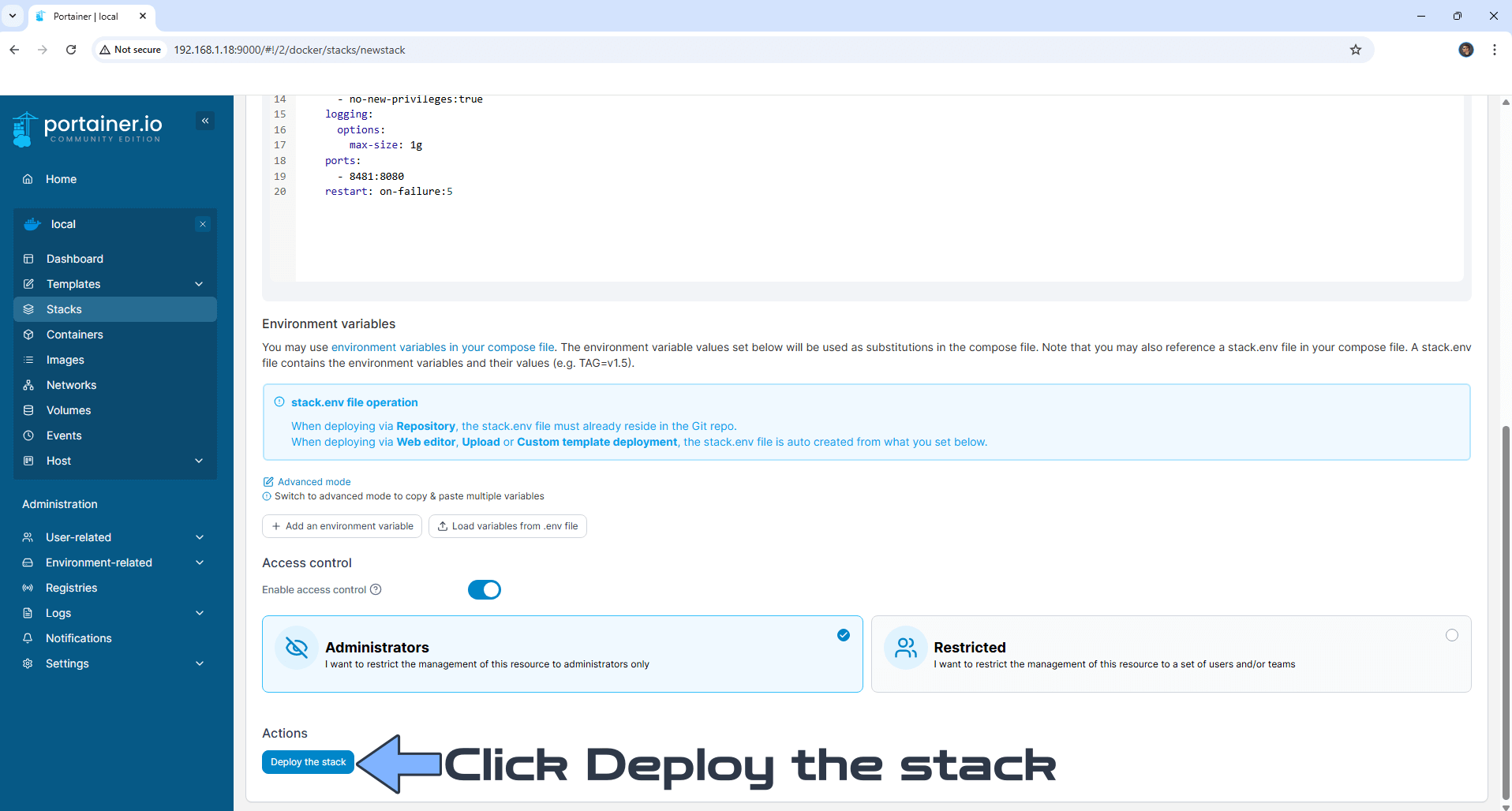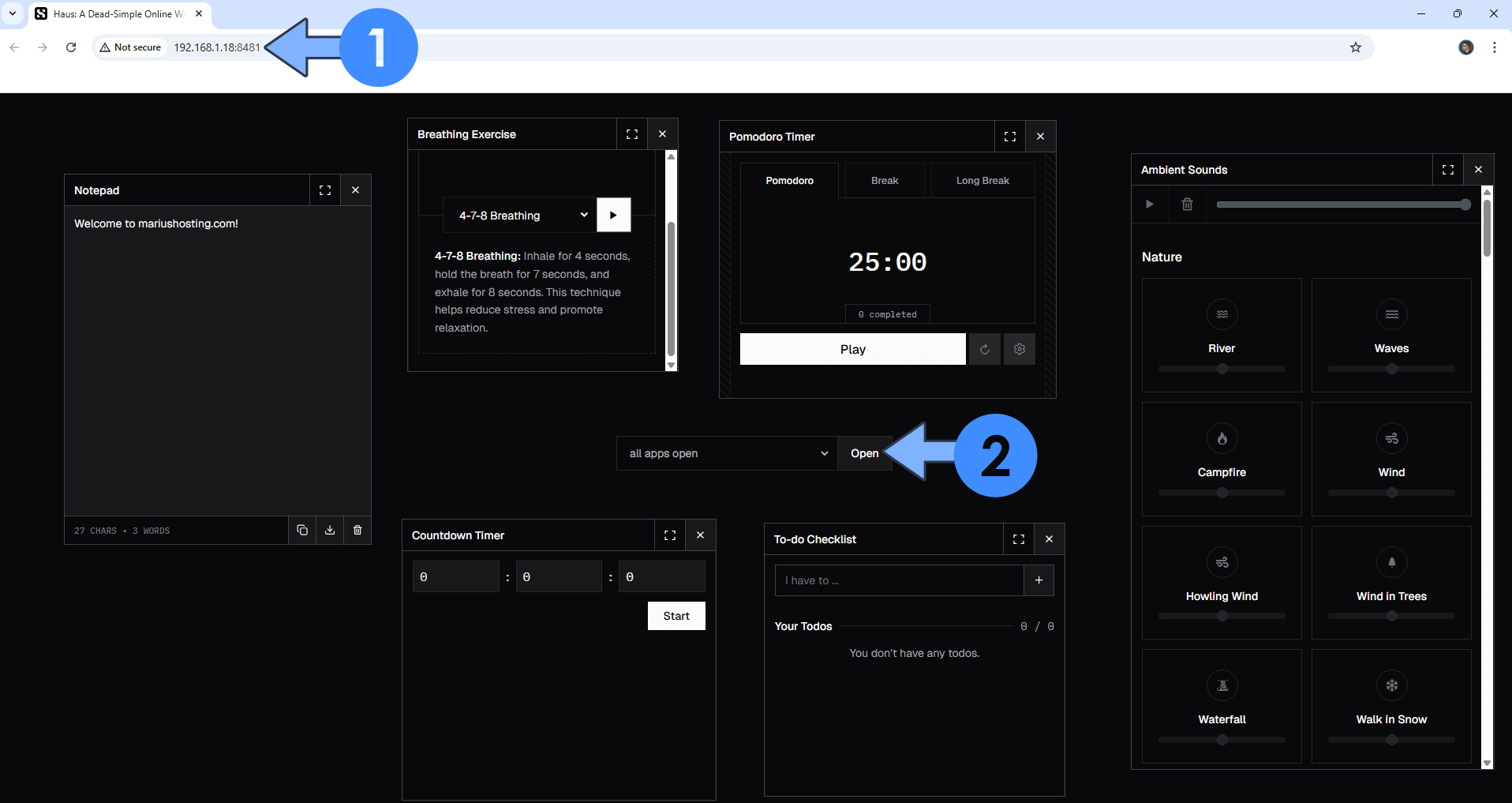
Haus is an online workstation designed as an alternative to Moodist, created by the same developer, remvze. Unlike Moodist, which primarily focuses on ambient sounds with additional productivity tools, Haus is built from the ground up to serve as a comprehensive workspace. It integrates all of Moodist’s features, including an ambient sound player with the same sound library, alongside tools like a notepad, to-do list, and Pomodoro timer. Users can open, close, move, and resize these tools/apps within the interface, offering a customizable and flexible experience. Haus emphasizes simplicity and privacy, storing all data locally in the user’s browser to ensure nothing is transmitted externally. In this step by step guide I will show you how to install Haus on your Synology NAS using Docker & Portainer.
This guide works perfectly with the latest Haus v0.1.2 release.
STEP 1
Please Support My work by Making a Donation.
STEP 2
Install Portainer using my step by step guide. If you already have Portainer installed on your Synology NAS, skip this STEP. Attention: Make sure you have installed the latest Portainer version.
STEP 3
Log into Portainer using your username and password. On the left sidebar in Portainer, click on Home then Live connect. Follow the instructions in the image below.

On the left sidebar in Portainer, click on Stacks then + Add stack. Follow the instructions in the image below.

STEP 4
In the Name field type in haus. Follow the instructions in the image below.
services:
haus:
image: ghcr.io/remvze/haus
container_name: Haus
healthcheck:
test: ["CMD-SHELL", "nc -z 127.0.0.1 8080 || exit 1"]
interval: 10s
timeout: 5s
retries: 3
start_period: 90s
mem_limit: 8g
cpu_shares: 2048
security_opt:
- no-new-privileges:true
logging:
options:
max-size: 1g
ports:
- 8481:8080
restart: on-failure:5

STEP 5
Scroll down on the page until you see a button named Deploy the stack. Click on it. Follow the instructions in the image below. The installation process can take up to a few minutes. It will depend on your Internet speed connection.

STEP 6
If everything goes right, you will see the following message at the top right of your screen: “Success Stack successfully deployed“.

STEP 7
🟢Please Support My work by Making a Donation. Almost 99,9% of the people that install something using my guides forget to support my work, or just ignore STEP 1. I’ve been very honest about this aspect of my work since the beginning: I don’t run any ADS, I don’t require subscriptions, paid or otherwise, I don’t collect IPs, emails, and I don’t have any referral links from Amazon or other merchants. I also don’t have any POP-UPs or COOKIES. I have repeatedly been told over the years how much I have contributed to the community. It’s something I love doing and have been honest about my passion since the beginning. But I also Need The Community to Support me Back to be able to continue doing this work.
STEP 8
The installation process can take up to a few seconds/minutes. It will depend on your Internet speed connection. Now open your browser and type in http://Synology-ip-address:8481 If everything goes right, you will see the Haus multiple tools page. Select an app from the list, then click Open. Follow the instructions in the image below.

Enjoy Haus!
If you encounter issues by using this container, make sure to check out the Common Docker issues article.
Note: If you want to run the Haus container over HTTPS, check How to Run Docker Containers Over HTTPS. In order to make Haus work via HTTPS, it’s mandatory to activate WebSocket.
Note: Can I run Docker on my Synology NAS? See the supported models.
Note: How to Back Up Docker Containers on your Synology NAS.
Note: Find out how to update the Haus container with the latest image.
Note: How to Add USB Support on DSM 7.2.
Note: How to Free Disk Space on Your NAS if You Run Docker.
Note: How to Schedule Start & Stop For Docker Containers.
Note: How to Activate Email Notifications.
Note: How to Add Access Control Profile on Your NAS.
Note: How to Change Docker Containers Restart Policy.
Note: How to Use Docker Containers With VPN.
Note: Convert Docker Run Into Docker Compose.
Note: How to Clean Docker.
Note: How to Clean Docker Automatically.
Note: Best Practices When Using Docker and DDNS.
Note: Some Docker Containers Need WebSocket.
Note: Find out the Best NAS Models For Docker.
Note: Activate Gmail SMTP For Docker Containers.
This post was updated on Thursday / November 27th, 2025 at 12:45 AM
